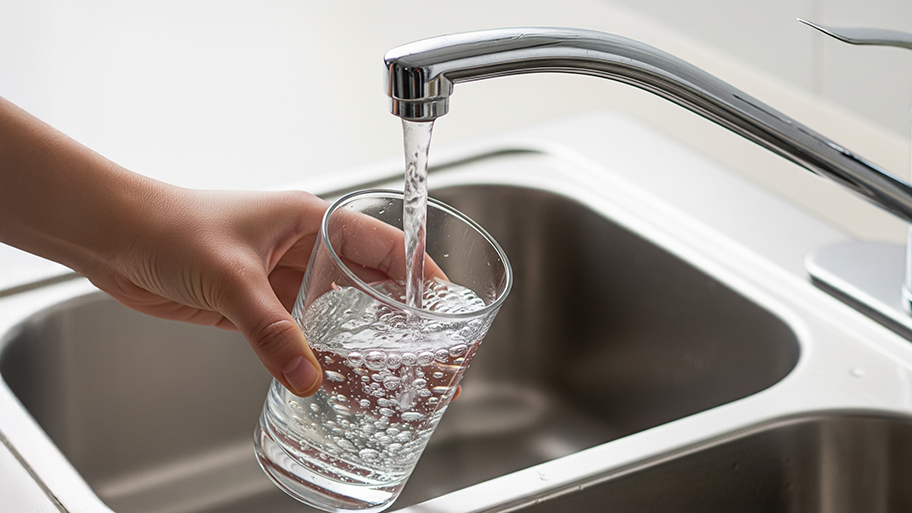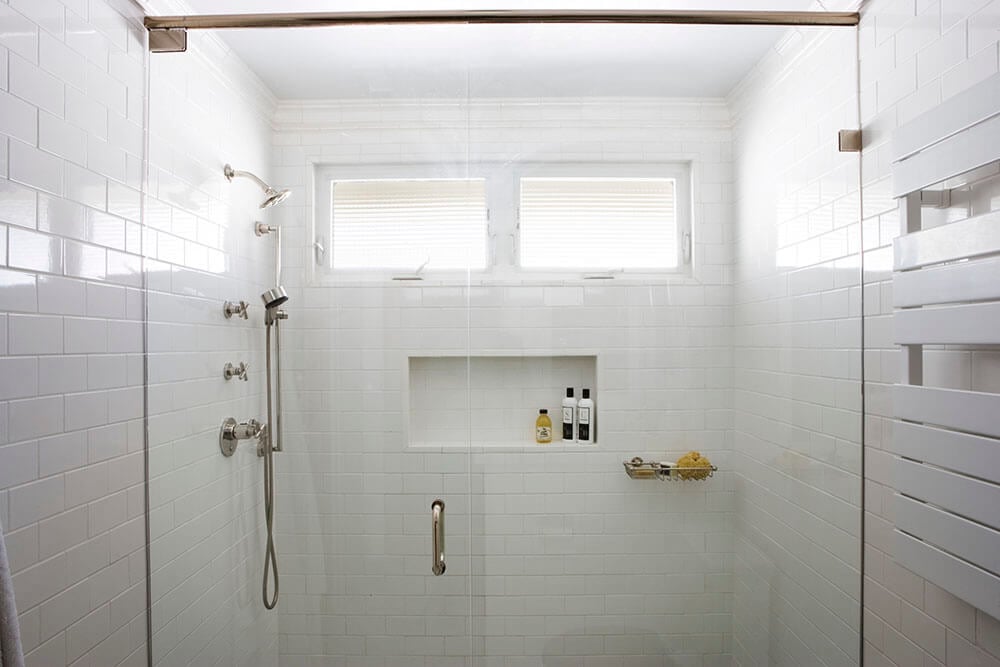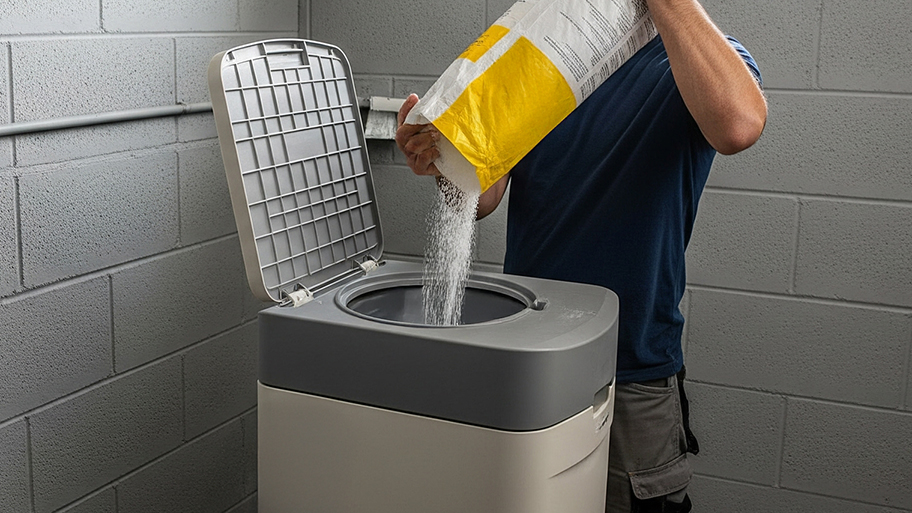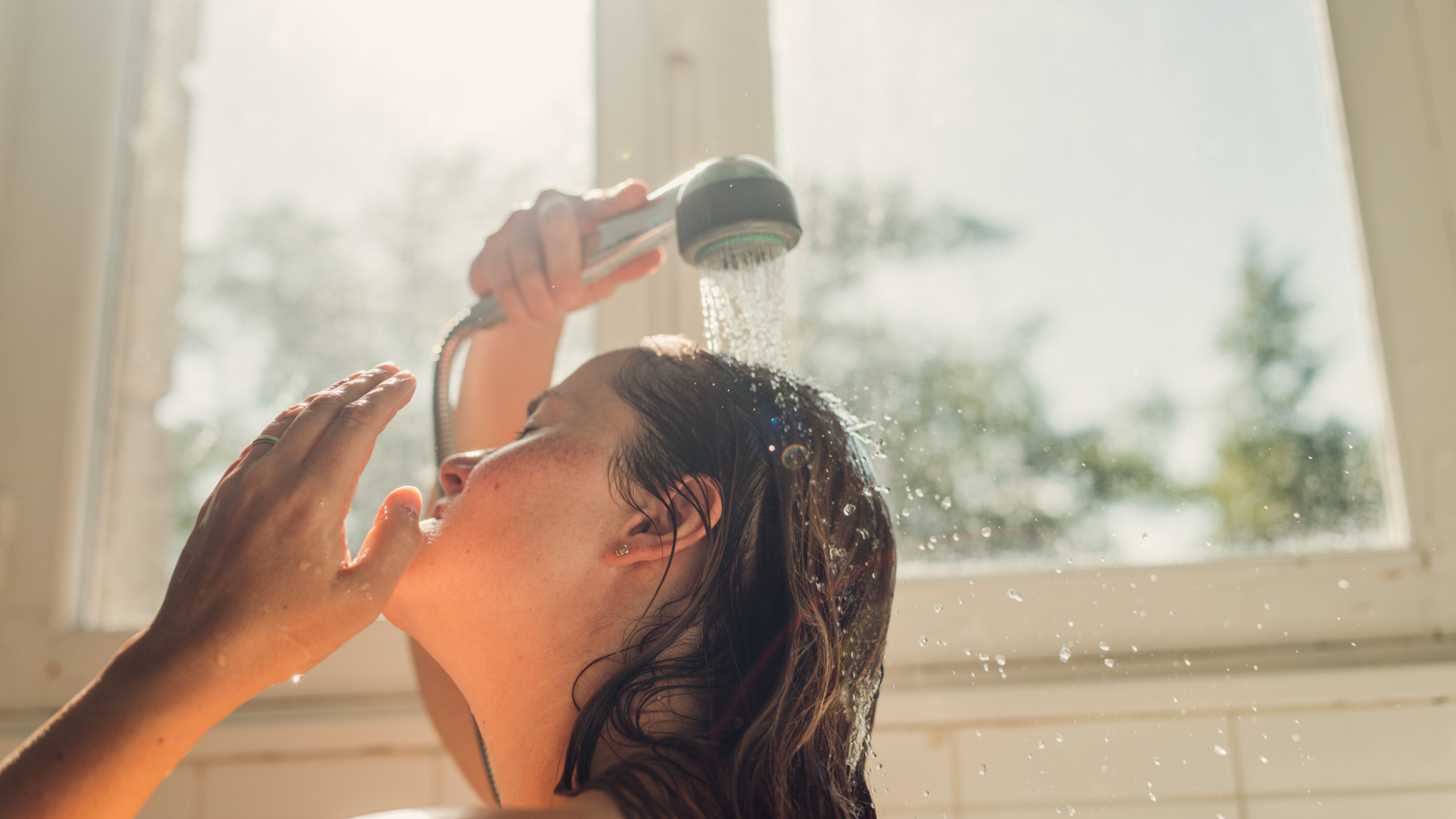
On average, a reverse osmosis water filter costs around $2,200, but there are a few variables that impact the total price. Learn about them in this guide.
Hard water stains and scale buildup begone


Water descalers and softeners reduce limescale buildup in your pipes and fixtures.
Descalers change the structure of hard water minerals without removing them from your water.
Softeners use salt to remove minerals and reduce your water’s hardness.
Descalers don’t change the taste of your water, but softeners might.
Softeners are better at treating hard water but are pricier and require more maintenance.
Stained sinks, spotty dishes, and scale-laden faucets are some obvious signs that you have hard water in your home. But it’s what you can’t see—like buildup in your pipes and appliances—that can cause the most damage. Installing a water descaler or water softener can fix these problems, but there are a few things to know before choosing one or the other. Join us as we compare descalers versus water softeners so you can decide which is best for your home.
Both water descalers and water softeners reduce hard water stains and scale buildup—just in different ways. Descalers change the structure of the minerals that cause hard water, so the minerals remain in the water but don’t stick to sinks, showers, and other surfaces. Softeners remove these minerals from your water entirely, preventing scale buildup and treating the other effects of hard water.
| Water Descalers | Water Softeners |
|---|---|
| More affordable | More costly |
| Easier installation | Complicated installation |
| Doesn’t actually soften water, only reduces the effects | Removes hard water minerals, softening water |
| Results may not be obvious | Improved water quality will be noticeable |
A water descaler, also known as a water conditioner or salt-free water softener, alters the chemical structure of the minerals in your water so they’re less likely to deposit inside pipes, appliances, and fixtures. There are several types of water descalers, including magnetic and template-assisted crystallization (TAC) descalers, each of which uses a different process to prevent minerals from leaving scale deposits.
| Pros | Cons |
|---|---|
| Less expensive | Doesn’t remove minerals or soften water |
| Minimal maintenance required | Won’t help with dry hair or skin |
| Doesn’t run on salt | Results may be harder to notice |
Best for:
Homes with low levels of water hardness
Folks on low-sodium diets or those who prefer not to use salt to soften their water
People who don’t want the maintenance requirements and costs of a water softener
If your only goal is to get rid of scale deposits around your home, installing a water descaler is more cost-effective than adding a water softener. Descalers only cost a few hundred dollars, while softeners can cost thousands. Plus, they don’t use as much electricity or water as a softener, so the ongoing costs are lower.
Descalers are also easier to maintain than softeners. With a descaler, there’s no need to refill the salt, replace the resin beads, or remove salt bridges. In fact, there’s very little maintenance required at all. But if your descaler stops working properly (for example, it won’t turn on or doesn’t prevent scale buildup), call a pro for help.
When compared to water softeners, descalers’ capabilities are quite limited. Yes, they can minimize scale, but they won’t reduce water hardness. This means you’re stuck with the problems caused by hard water, such as stiff laundry, dry hair and skin, and elevated cleaning costs.
Similarly, since descalers don’t actually remove minerals from your water, the results aren’t always as noticeable as they are with softeners.
A water softener removes hard minerals (such as calcium and magnesium) from your water, reducing scale buildup, providing better hydration for your hair and skin, and putting less strain on your appliances. After the water softener removes these minerals, it replaces them with softer ones (like sodium or potassium) and pushes the softened water into your home’s plumbing system.
| Pros | Cons |
|---|---|
| Reduces spotting on dishes and surfaces | Needs salt refills and regular maintenance |
| Protects appliances and pipes | More expensive |
| Combats dry hair and skin | Produces wastewater |
Best for:
Households with hard or very hard water
Anyone concerned about the effects of hard water on their appliances or plumbing
Homes on well water
One benefit of water softeners is that they’re more effective than descalers at preventing scale accumulation. Using one will put less strain on your plumbing system and appliances, protecting them against hard water damage.
Plus, a water softener doesn’t just remove hard water stains and scale. It also treats the other effects of hard water. After installing one, you may notice that your laundry is softer, your skin and hair are more nourished, and your soap bubbles up more easily.
Between salt refills, cleanings, and water softener inspections, softeners require more upkeep than descalers. They’re also more expensive to operate and may require repairs from time to time. On average, repairing a water softener costs between $160 and $980.
Another downside of softeners is that they create wastewater. This salty byproduct of the softening process isn’t always easy for water treatment plants to process, which is why softeners are banned in some areas. They’re also not compatible with some septic systems. If you’re unsure whether these restrictions apply to you, ask a local water softener installer.

When weighing a water softener versus a descaler, it’s helpful to understand how they match up in certain categories. Here’s how the two compare in terms of cost, maintenance requirements, and more.
Descalers are the more affordable option, with an average electric descaler costing around $200. Water softeners cost between $200 and $6,000—and that’s not including the price of salt, which you’ll have to refill every few months. (Alternatively, you can rent a water softener for roughly $20 to $50 per month, but you’d still have to pay for your own salt.)
Water descalers don’t need a lot of maintenance (other than periodic inspections to confirm that they’re running properly). Water softener maintenance is more expensive and labor-intensive because it involves buying bags of salt, replenishing it as needed, and cleaning the brine tank.
Descalers don’t remove calcium and magnesium from your water. They just change the composition of your water so it doesn’t leave spots and stains. Water softeners actually filter out these minerals, so they’re a better bet if your goal is to reduce your water’s hardness level.
Tomy's team is top-notch! They replaced my old opener with a quiet, modern one. The whole process was smooth and hassle-free
Alex and his crew are great! I contracted them to move my dad and they went above and beyond!
From average costs to expert advice, get all the answers you need to get your job done.

On average, a reverse osmosis water filter costs around $2,200, but there are a few variables that impact the total price. Learn about them in this guide.

How much a water softener costs depends on your home’s size, and the system’s type and capacity. Our expert guide explores all the price factors.

Wondering about water treatment system costs? Learn average prices, key cost factors, and ways to save on installation and maintenance for your home.

Are water softeners worth it? While they offer benefits to many homeowners, they aren’t always necessary. Learn whether this appliance will pay for itself.

How does a reverse osmosis water filter work? Water passes through a semipermeable membrane to remove common contaminants, leaving clean, fresh water.

Don't let hard water stains cramp your style. Use this guide to learn how to remove hard water stains from glass using items you already have at home.